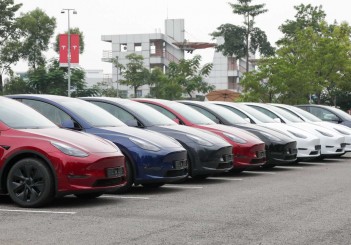DALIAN: China will further open its manufacturing sector, including the auto industry, while reducing its negative investment list that restricts foreign investment in some areas, Premier Li Keqiang said today.
China will also end ownership limits for foreign investors in its financial sector in 2020, a year earlier than scheduled, Li told the World Economic Forum in the northeastern Chinese port city of Dalian.
Beijing’s signal that it is quickening the pace of opening up came after the presidents of China and the United States agreed over the weekend to restart trade talks in another attempt to strike a deal and end a bruising tariff war.
But analysts doubt the ceasefire will lead to a sustained easing of tensions, and warn lingering uncertainty could dampen corporate spending and global growth.
Where the auto industry is concerned, China had announced in April last year that it would permit foreign automakers to own more than 50 percent of local ventures, giving a boost to global companies seeking to capture a greater share of the world’s largest car market even as as its own manufacturers prepare to expand abroad.
READ MORE: Chaotic execution of new emission rules blamed for plunge in China auto sales
The government is also receptive to cutting import tariffs on vehicles.
On Sunday, China cut the number of sectors subject to foreign investment restrictions, a widely expected move, to 40 from 48 in the previous version, published in June last year.
China is moving forward the schedule to show the world that it will not stop opening up its financial sector, Li said, adding the government will also reduce restrictions next year on market access for foreign investors in the value-added telecoms services and transport sectors.
“We will achieve the goal of abolishing ownership limits in securities, futures, life insurance for foreign investors by 2020, a year earlier than the original schedule of 2021,” Li said.
In recent months, China has allowed many foreign financial firms to either set up new businesses onshore or expand their presence through majority ownership in domestic joint ventures across mutual funds, insurance and brokerage businesses.
Sources with direct knowledge of the matter previously told Reuters that Morgan Stanley is likely to get regulatory approval for owning a majority stake in the second half of this year.
The US-China trade war has hit business confidence worldwide, disrupted supply chains and shaken financial markets, adding to worries about a global economic slowdown.










